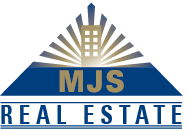In our previous blog, we reported on a significant and widespread landlords’ practice of duplication / multiplication of costs, better known as “double-dipping”, relative to administration fees. Using the lease wording example below, let’s see how tenants can prevent this practice and reduce their financial exposure to it, when negotiating their lease with their landlord.
Example:
The recoverable operating costs include all the direct or indirect costs of maintenance, repair, replacement, security, housekeeping, insurance, public utilities, operation, management, administration, supervision or any other costs related to the building. Without limiting the generality of the foregoing, recoverable operating costs include, among others:
- The cost of photocopies, accounting, office expenses and other administrative costs related to the building;
- An administration fee equal to 15% of all costs included in recoverable operating costs.
Step 1
The first step is to prevent lessors from charging in the building operational costs their own overhead costs on top of an administration fee. Overhead costs are varied, such as expenses related to a management office that would be located outside the building. But we mainly refer to salaries and benefits paid to certain employees of the lessors, which are generally the most important costs falling under this category.
In the above definition of recoverable operating costs, it is necessary to avoid references to any indirect costs whatsoever. In addition, any reference to general overhead costs that should be defrayed by the lessor (such as the first bullet point in the above example) must be excluded from the list of recoverable expenses.
Another way to achieve this objective is through the addition of a specific exclusion in the definition of recoverable operating costs. Indeed, all indirect or overhead costs of the lessor could be excluded by adding a lease clause similar to the following:
Notwithstanding the foregoing, the following costs will be excluded from the definition of the recoverable operating costs:
All overhead expenses of the lessor and all indirect costs of the building, including salaries, the parties agreeing that only costs directly and exclusively attributable to the building and incurred in the building will be included in this definition. ;
Step 2
It is also necessary to include in the lease, detailed definitions of the words “operation”, “management”, “administration” and “supervision”. Since the lessor has included four different words in his lease, he must be able to explain and differentiate them clearly. If he cannot, it is very likely that they mean the same thing and they should not be repeated in the lease. It is alright if the lessor can clearly differentiate them and if the tenant understands the definitions and accepts the inclusion of these four types of costs in the rent. Defining these four words will have had the advantage of clarifying the situation for everyone.
Step 3
Duplication of administration costs can be the result of other types of situations. For example, when a lessor carries out large-scale work of a capital nature, it often happens that he charges a management fee to the project for having supervised the project site. When the total cost of the project is charged annually to the building’s operating costs, via depreciation and interest charges, this management fee is therefore re-invoiced to tenants, plus a 15% administration fee. In order to avoid such a situation, it should be mentioned in the lease that the 15% administration fee does not apply to depreciation and interest expenses.
Step 4
The lease should clearly state that the lessor cannot charge management fees to the building operating costs if he also charges administration fees (15% in our example). It’s one or the other. Here is how this requirement could be clearly articulated in the lease:
The lessor acknowledges that the administration fee of 15% is paid to him as remuneration for the management and / or administration of the building. He may not charge any management and / or administration expense to the operating costs of the building, other than the 15% administration fee.
If the lessor chooses to delegate the management and / or administration of the building to a third party, the remuneration paid to this third party may be included in the operating costs of the building provided that:
- the lessor waives the inclusion of the 15% administration fee in the building’s operating costs; and
- the compensation paid to the third party does not exceed the amount equivalent to the administration fee of 15%.
Step 5
Some lessors will also want to impose an administration fee to tenants, on the amount of property taxes of the building. This expense is generally very material but requires very little management effort for a lessor, therefore the majority of tenants find this expense rather abusive.
For example, if the property taxes on a building total $ 2,000,000, why would a lessor earn $ 300,000 for simply having issued a total of four to six checks to the municipality and the school board?
Due to this aberration, the imposition of an administration fee on property taxes is not the norm, although it is present in some leases. The lease should clearly state that administration fees are not applicable to property taxes.
WHEN NEGOTIATING AND MOSTLY BEFORE SIGNING AN OFFER TO LEASE AND/OR A LEASE FOR A COMMERCIAL SPACE, ALL TENANTS SHOULD ENSURE THAT A LEASE ADMINISTRATION EXPERT REVIEWS THE DOCUMENTS. THIS COULD SAVE YOUR COMPANY A LOT OF MONEY. CONTACT US TO KNOW HOW WE CAN HELP YOU REDUCE YOUR FINANCIAL EXPOSURE TO COMMERCIAL LEASES.



